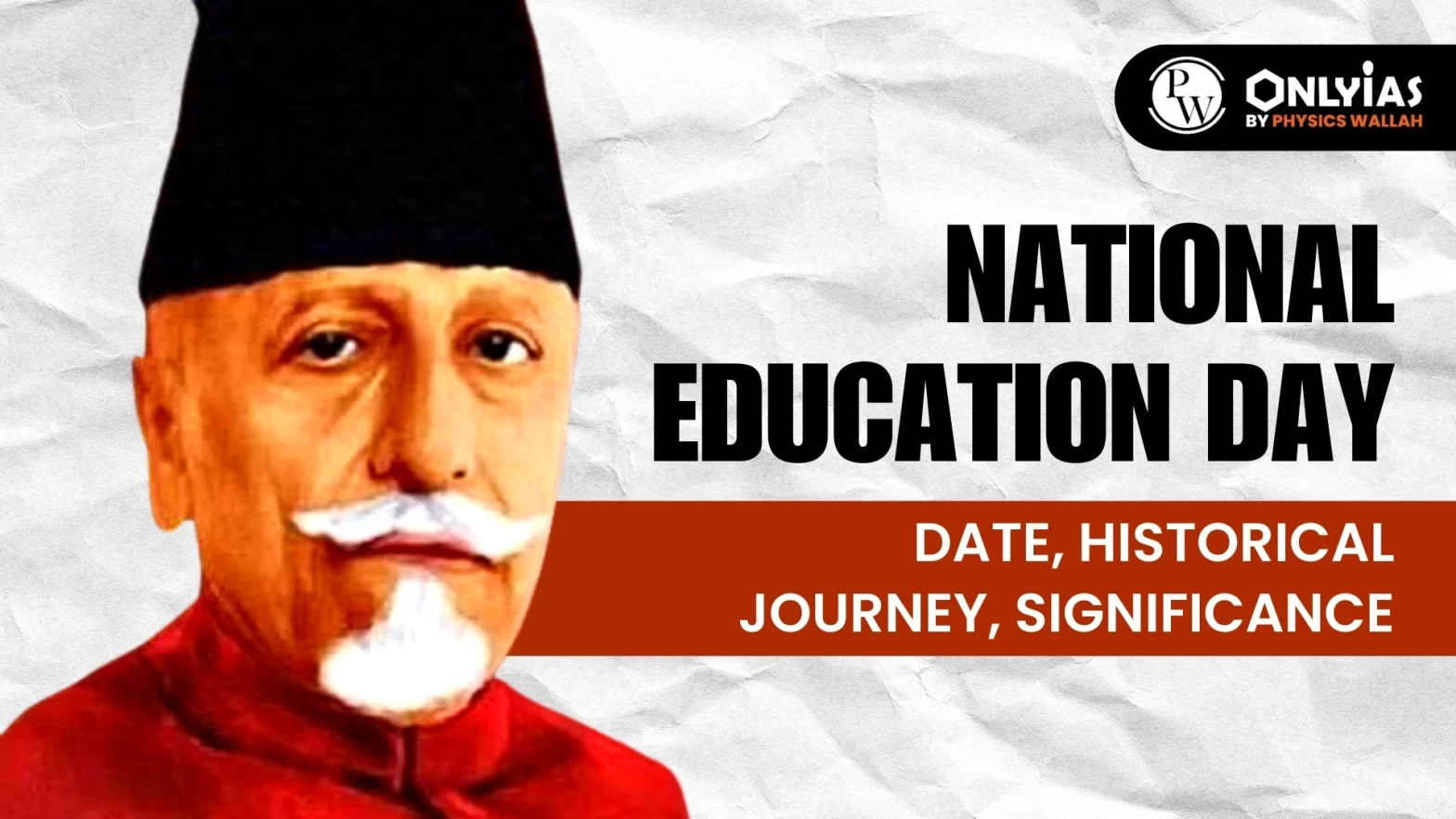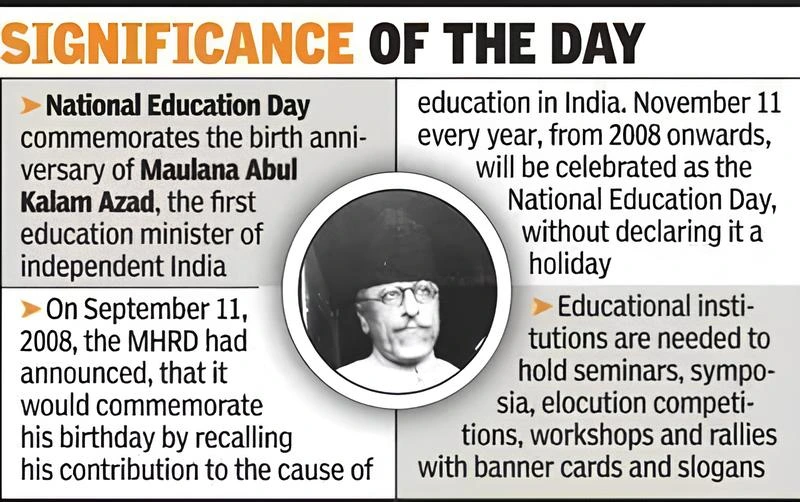Context: November 11 every year is celebrated as National Education Day.


The National Education Day will not only celebrate the contributions of Maulana Azad to the field of education, but will also promote the education environment in the country.
| Must Read | |
| NCERT Notes For UPSC | UPSC Daily Current Affairs |
| UPSC Blogs | UPSC Daily Editorials |
| Daily Current Affairs Quiz | Daily Main Answer Writing |
| UPSC Mains Previous Year Papers | UPSC Test Series 2024 |
November 11 every year is celebrated as National Education Day.
National Education Day is celebrated to commemorate the birth anniversary of India's first Education Minister Maulana Abul Kalam Azad.
Maulana Abul Kalam Azad was a scholar, activist and leader of the Congress party. After independence, he served as the Education Minister.
Maulana Azad wrote many books such as India Wins Freedom and Ghubar-e-Khatir.
Sarva Siksha Abhiyaan, Mid-day Meal Scheme, Padhe Bharat Badhe Bharat, New India Literacy programme etc are some of the famous schemes related to education in India.

<div class="new-fform">
</div>